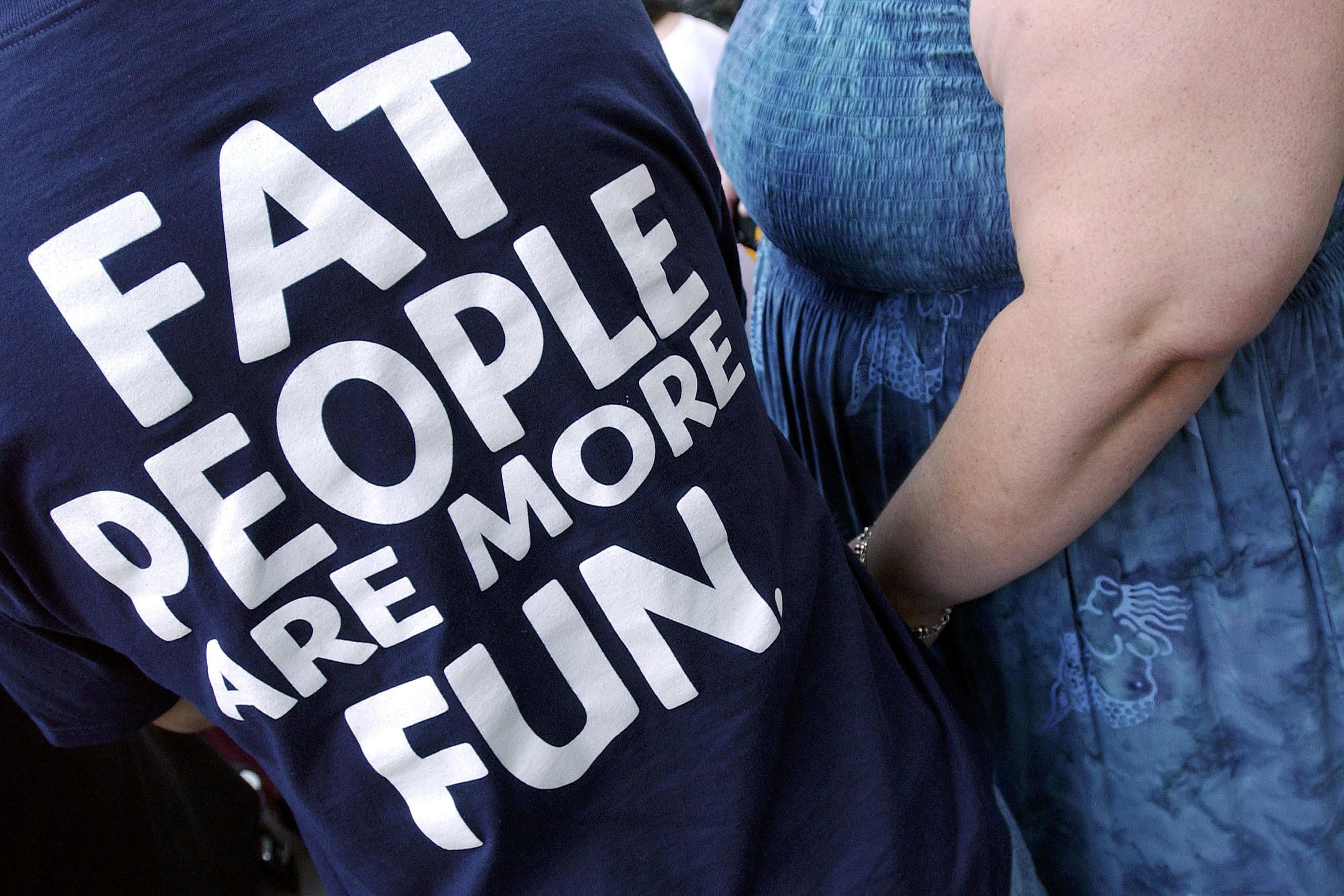A recent column in the Guardian opens with a headline that I can only assume is supposed to shock readers, even though it confirms countless societal cues: “It’s not okay to be fat.” In a brave challenge to a particularly dangerous contingent of the body-positive movement that has “taken things a step too far,” writer and editor Lizzie Cernik asserts that the Overton window of acceptable self-love can only be expanded to include so many bodies. She writes that the body acceptance movement was fine when it was simply “empowering women of non-Barbie proportions to feel good about themselves.” But now that we’re expected to not harass fat people about their health, it’s time to put a foot on the brake. “Fronted by plus-sized models and social media influencers, the fat acceptance movement aims to normalize obesity, letting everyone know that it’s fine to be fat,” she writes. “With terms such as ‘straight size’ and ‘fat pride’ proliferating, some influential figures are now even likening the valid concerns of health officials to hate crimes.”
She then goes on to berate comedian Sofie Hagan, who recently accused a British charity of fat-shaming after they launched a campaign that cited obesity as the most preventable cause of cancer after smoking. Admonishing Hagan’s “expletive-laden tweets,” Cernik makes sure to say that bullying is never right before reverting to her overarching argument: that fat pride is somehow promoting an unhealthy lifestyle.
There are a few mistaken assumptions here. The first is that the fat pride movement agenda—or really any pride-based movement—is somehow about promoting or advertising a specific “lifestyle.” That assumption is one implicit in indignant questions like “What will I tell my children if they see X person living their life in public?” The obvious answer to that question is to tell your child, “That’s a person, who like all people, deserves to live their life without our commentary. Now let’s go, Horatio.”
Cernik is operating under an assumption that the fat acceptance movement’s end goal is not to empower or provide solidarity, but rather to get more people to be fat. She’s insinuating that their unashamed existence is a kind of propaganda. “But while your own body is your business, actively encouraging unhealthy lifestyle choices and denying health risks in a public space isn’t promoting body positivity,” she writes. “It’s just giving the green light to different kinds of eating disorders.” It’s telling that, for Cernik, anyone who publicly accepts or celebrates a stigmatized identity must be doing so as a means of convincing skeptics rather than for themselves.
Of course, fat people aren’t trying to encourage more people to become fat; they’re trying to live a life with dignity. If you’ve never been fat, it’s hard to understand the various ways in which your body stops becoming your own once you reach a certain weight. It becomes an object for public consumption and comment or ridicule. Strangers feel obligated to tell you you’re going to die early or give diet tips or scrutinize your every meal under the guise of patronizing concern for your health. And that’s despite the fact that, contrary to Cernik’s skepticism, there’s nowhere near scientific consensus that fat always equals unhealthy.
Which brings me to my second point—even if fat did conclusively coincide with being unhealthy, that wouldn’t undermine the existence of the fat acceptance movement in any way. Because contrary to popular belief, a person’s weight, height, or appearance is not something that I, an impartial observer, should care about. The tired excuse that this patronizing concern is about “health” only holds if you, say, go around shaming all your co-workers into standing up every 30 minutes since excessive sitting can kill you. And that’s not even addressing the fact that stigma and shame rarely get positive messages across: Even if you really did care about fat people’s health, telling them that their existence promotes eating disorders isn’t exactly conducive to losing weight. At its core, the fat acceptance movement is one that asserts fat people’s rights to publicly love themselves without shame and to live their lives without being stigmatized or discriminated against. Anyone who’s personally offended by that should consider working on their own mental and emotional health first.
